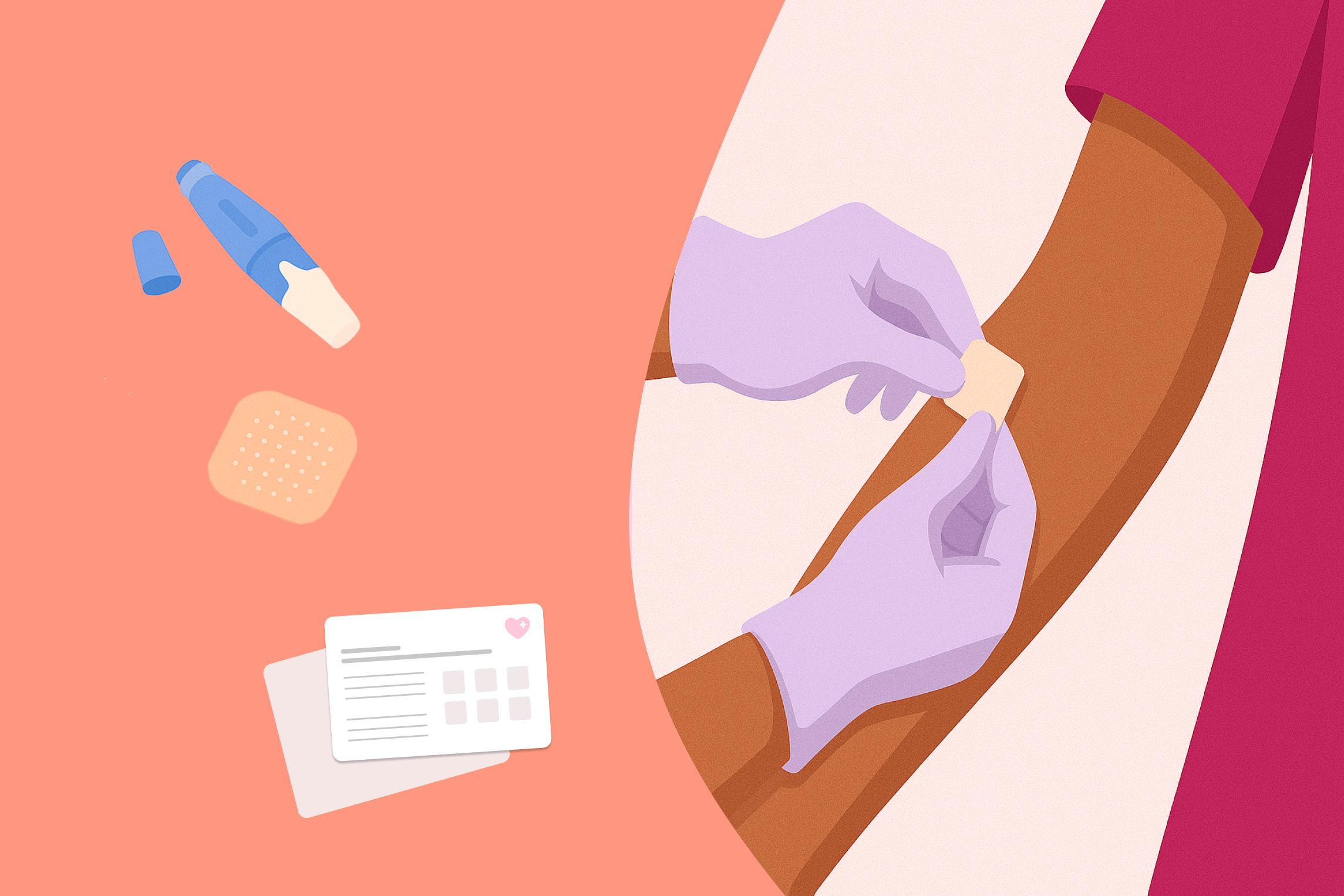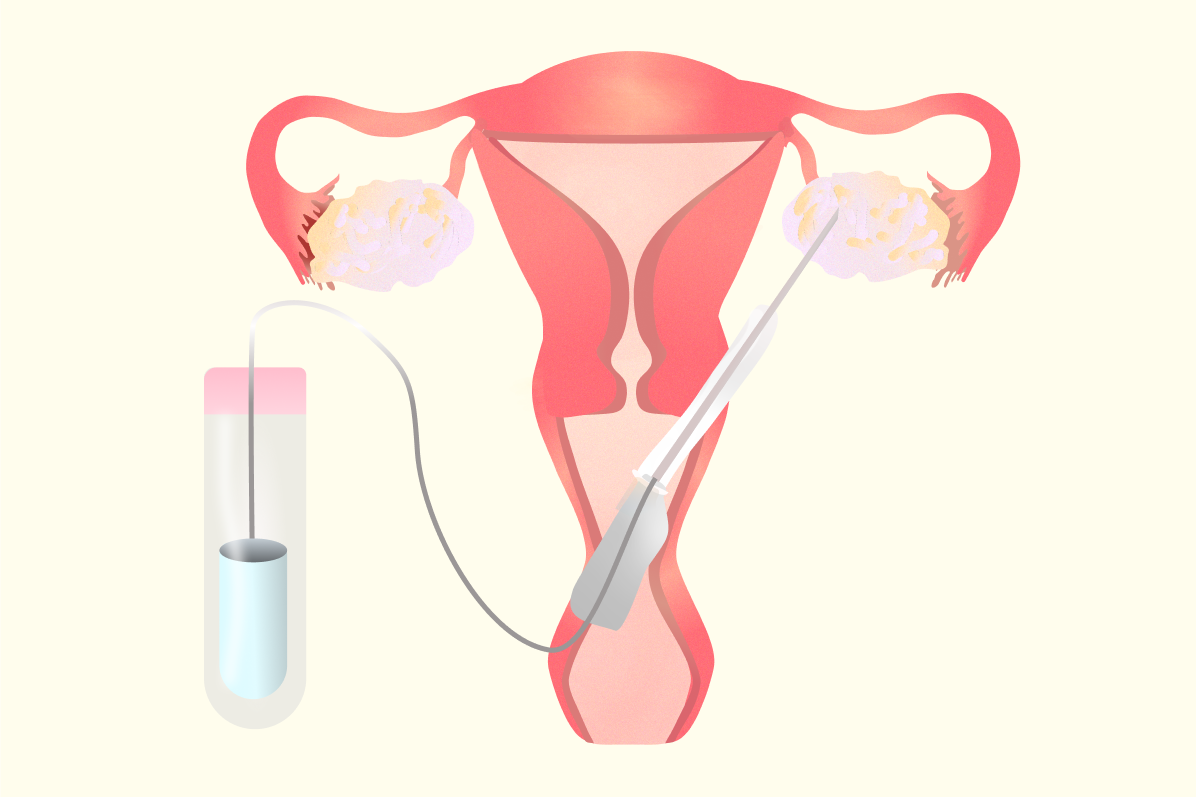In an eggshell...
- Egg freezing is a way to store eggs for future family planning, beneficial for those not ready for children yet or facing challenges in timing
- It is a minor procedure done under ultrasound guidance, where you will be under anesthesia
- The process involves hormonal medication and surgery to remove eggs from the ovaries, with potential side effects like mood swings, bloating, and soreness
- Risks include Ovarian Hyperstimulation Syndrome and any risk that the procedure of egg retrieval carries
- Egg freezing doesn't reduce fertility or cause early menopause.
- Clinics can work to reduce risks and side effects with careful monitoring and personalised treatment plans
Maybe you think egg freezing is for you. You might want children someday but you're not ready yet.
Here’s the thing: The average UK mum giving birth in 2021 was 30 years old.And this is increasing, as we’re choosing to have children later- career, education, travel, health, and family circumstances can make it hard to find the right time.
But as we get older, both the number and quality of our eggs reduce.With egg freezing, you can preserve your fertility for that age. You can store your eggs for future use or family planning.But as with every medical procedure- there are side effects and risks that it accompanies. But does that mean the procedure is a no-go? Not really. Side effects and risks may or may not happen, but being aware of the same helps make the process more transparent and helps you make informed decisions for your health.So what exactly are the side effects and risks of egg freezing?Read on to know!
What is egg freezing?
First, let's start with the basics. Egg freezing is a process where eggs are extracted from the ovaries, frozen, and stored for later use. When you're ready to start a family, the eggs can be thawed, fertilised, and implanted.
Before egg removal, you’ll be hormonally medicated to help increase egg production for a few weeks. Then, on egg retrieval day, you’ll go to the hospital for the day to have your eggs removed whilst you’re sedated or put to sleep.
Side Effects of Egg Freezing
You’ll need medication followed by surgery to extract eggs from your ovaries. The entire procedure involves hormonal medication- and the process of surgery itself, which may have side effects.
Egg-freezing medication side effects
Before egg removal, you will likely be given hormonal medication to take for several weeks. Associated side effects include:
Ovarian Stimulation Medication Side Effects
- Before egg retrieval, you will be given hormonal medication to take for several weeks. Associated side effects include:
- Mood swings
- Hot flushes
- Headaches
- Bloating
- Nausea
- Injection site reaction
- Cramping
- Breast tenderness
- Ovarian Hyperstimulation Syndrome (more on this later)
Side Effects from Egg Retrieval Surgery
As the egg retrieval surgery isn’t too complicated, you should be able to go home after the procedure. In some cases or based on your response and health, you may be asked to halt and rest for the day.
You may experience some of these side effects in the following days:
- Bloating
- Vaginal soreness
- Abdominal pain
- Bleeding/spotting
Simple painkillers are often recommended. But taking a day or two off work can also help you rest and recover.
If you feel that any of these symptoms are getting worse or prolonging, we recommend reaching out to your healthcare professional.
Does egg freezing have long-term side effects?
It’s very rare for egg freezing to have long-term side effects. It doesn’t affect your future fertility either.
You may also wonder if fertility medication has a side effect in the long run. However, studies have shown that there is no increase in the chances of breast cancer, or any other type, for that matter.
After your egg-freezing process, your menstrual cycle should return to normal (in about 7-10 days, termed withdrawal bleed). You may be requested to avoid exercise and intercourse until it happens.
Does freezing your eggs cause early menopause?
Actually, no. And here’s why.
During a normal cycle, one follicle matures into one egg that is released from the ovary. Lots of other follicles are present that don’t grow into an egg and die, instead.
“This is because all women are born with a complement of eggs. which we use up during our lifetime unlike men, who can make new sperm every 3 months” Dr Lisa Stradiotto says. This means, that during egg freezing, we use hormonal medication to help multiple follicles grow and produce eggs, so we can preserve them.
If not, naturally, they would’ve grown and died during a menstrual cycle, if not fertilised. “So you're actually rescuing and preserving your fertility rather than depleting it”, says Dr. Lisa Stradiotto.
What are the risks of Egg Freezing?
The biggest risk of egg freezing is related to the dosage of medication and how your body reacts to it. While the chances of it are very rare, it’s important to be informed of the condition and its symptoms for a transparent procedure.
Ovarian Hyperstimulation Syndrome
OHSS is a potentially serious condition where your ovaries overreact (ovary-act 😔) to hormonal medication. This can cause your ovaries to become swollen, painful and produce more eggs than expected, due to overstimulation.
Symptoms of OHSS include:
- Severe abdominal/stomach pain
- Stomach swelling
- Rapid weight gain
- Sickness and vomiting
- Shortness of breath
- Dizziness/feeling faint
- Passing urine less often
If you experience any of these symptoms, we recommend seeking medical attention immediately.
But OHSS is as rare as it comes. Usually, given your medical history and hormonal blood work, it is possible to know if you are at risk for OHSS prior to starting your egg-freezing cycle. Based on this, a personalised treatment plan can be recommended.
Egg Retrieval Surgery Risks
The egg retrieval process is a minor surgery, but due to the nature of the procedure, it carries its own risk, from either the procedure itself, or due to the anesthetic used.
The egg retrieval process includes an aspiration unit- a vacuum pump, a collection tube connected to the needle, and a test tube to collect the eggs and follicular fluid.
While it's generally a safe procedure, there are some risks, including:
- Infection
- Bleeding
- Damage to nearby organs
You will be informed of the risks prior to the procedure, but it's important to remember that egg retrieval is a carefully conducted, minor procedure done under ultrasound guidance.
While it’s good to know about these risks, their occurrence is limited. In case you experience any of these, we recommend reaching out to your doctor as soon as possible.
How can clinics work to reduce the side effects of egg freezing?
Reducing the side effects majorly also requires preventive measures and careful monitoring. Every egg-freezing journey is unique, so it’s important to keep an eye out for any major or minor fluctuations.
Here are some steps clinics can take from their end to reduce the side effects:
Personalised Monitoring
Clinics prioritise careful monitoring to minimise the risk of complications like OHSS. They do it via in-person check-ups or regular phone calls, if they notice any symptoms or if you are at risk.
A Tailored Approach
Every woman is different. And so is their egg-freezing journey.
By knowing your medical history, your healthcare provider can create a personalised treatment plan. By considering factors like medical history, age, and personal preferences, personalised treatment protocols can not only reduce risk, but also can let your body respond better to the medication.
Patient Education
Transparency is key. Effective communication is when your clinic is proactive about letting you know about the procedures, how they are done, the risk factor, etc.
Educating patients is key as it helps them look out for any symptoms, seek medical assistance and make informed decisions along with their healthcare provider on what is best for them.
Questions to ask your clinic
If you have questions on egg freezing or are wondering what to ask your healthcare provider, here are some questions you can get started with:
- What are the specific risks and side effects associated with egg freezing?
- How will my treatment plan be tailored to minimise these risks based on my unique circumstances?
- Are there any alternative options I should consider?
- What protocols are in place to prevent ovarian hyperstimulation?
- Do you have experience treating women with similar demographics or medical conditions?
A final note from Amilis
When you choose the right specialist, clinic, and the right resources, your fertility journey becomes a tad bit easier.
Because while most of the effort comes from you, having the right resources around you can change how you experience your freezing cycle.
That’s why, at Amilis, we believe in providing the best care, from the very first step. Here’s how:
- Get discounted prices on fertility tests, such as AMH and full hormone panel(at price is 50% cheaper than fertility clinics)
- Get free consultations with expert doctors across the UK
- Free consultations with vetted egg freezing clinics near you
- Free 1-1 calls with Amilis experts throughout your journey
It’s about time we make fertility care accessible, not a luxury.
And we’re paving the way for it, one day at a time 🙌🏼








.png)

